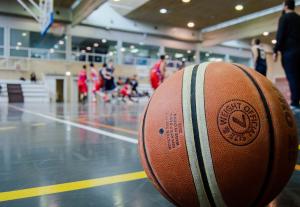
The power of sport and community relations has helped to heal the divide in North Belfast.
In 2001 and 2002 a North Belfast primary school found itself in the news headlines. Holy Cross Girls is a Catholic primary school located in the middle of a Protestant area and schoolchildren walking to school faced daily pickets. In what was known as the Holy Cross dispute, violence and tensions escalated in Ardoyne and the wider North Belfast area.
Following the aftermath of these tensions, PeacePlayers NI – core-funded by the Community Relations Council – brought together pupils from Holy Cross and the predominately Protestant neighbouring Wheatfield Primary.
This peace-building intervention utilised an innovative programme of tailored community-relations work through sport. The aim: to build long-term relationships; create leavers; and reduce barriers.
“We chose basketball initially because, being perceived as being American, it didn’t have a religion attached to it, so it could be seen as neutral,” said Gareth Harper, Managing Director of PeacePlayers NI.
PeacePlayers creates a safe place where young people from different backgrounds and traditions can come together, play sport as a group, and develop friendships together – reinforced through playing as integrated teams.
“We have these huge walls which divide the two traditions here,” Gareth continued. “But the people living on either side of these walls are experiencing exactly the same problems.”
While the physical peacelines in Belfast remain, the power of sport continues to help remove the barriers that exist in people’s minds.
“What we try to install is a sense of responsibility,” Gareth said. “The kids have a role here to play in making Northern Ireland better, and we’re going to try and give them the skills, experiences and opportunities to allow them to do that.”
This led to another innovative programme.
Drawing on local and international experience using basketball to bridge divides, develop leaders and change perceptions, PeacePlayers – working closely with the Ulster Council of the GAA, the IFA and Ulster Rugby – helped evolve and develop the Game of Three Halves model – which typically uses Gaelic football, rugby and soccer to challenge perceptions and attitudes.
But the inclusion of an expertly facilitated 4th half of community relations conversations and capacity building helped unlock the peace-building potential of sport.
This innovative strategy has been referenced in The Executive’s Together: Building a United Community strategy as a case study of best practice.
“Having this focus ensures the children and young people are fully engaged,” Gareth said. “Children who play together can learn to live together. Not only have they learned to live together and play together but they’ve developed strong friendships. We want them going back into their own area to make a real difference.”
Two such people have already experienced the PeacePlayers effect.
Rachel and AJ attended two primary schools in North Belfast separated by a community divide. PeacePlayers brought them together and they’ve since been friends for almost a decade.
They’re both sessional coach with PeacePlayers, having graduated from one of their courses.
“We went to primary schools in Belfast just across the street from each other,” AJ said. “But we grew up in separate worlds and never crossed the road to speak. Today, simply after the opportunity to play basketball together, we’re the best of friends, forming a friendship across the divide with the help of PeacePlayers Northern Ireland.”
Rachel added: "We grew up within PeacePlayers, and I've experienced first-hand the importance of a nurturing and positive environment, filled with friends and supportive coaches and how this can impact on a participant’s life.
“It’s important to me to create a similar experience for participants who are currently engaged in PeacePlayers.”
Sport’s ability to bring people together and form lasting friendships is key to PeacePlayers’ success.
“We provide coordinated interventions at key life stages,” Gareth said, “to allow people from different backgrounds to address embedded patterns of division and mistrust.
“Having PeacePlayers’ contribution and that of sport recognised by CRC through the awarding of core funding status, has helped PeacePlayers to raise the profile of peace-building through sport work and to develop new and innovative sports-based programming that has already helped and will continue to help children and young people to come together.”
Further Information
PeacePlayers NI is core funded by the Community Relations Council. Read more about our Core Funding Scheme.